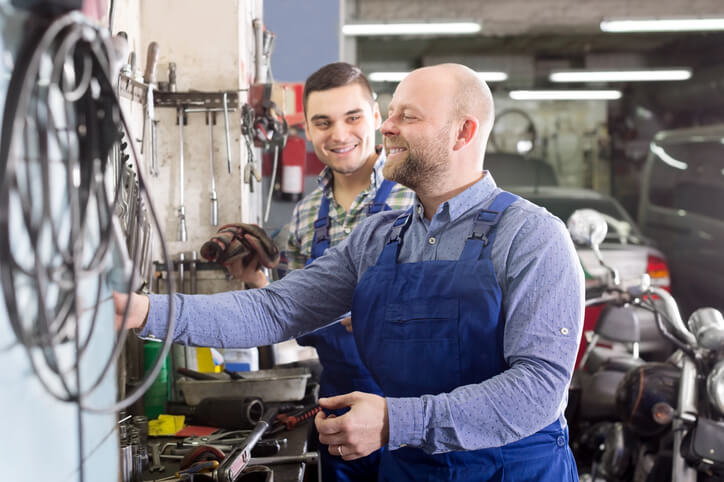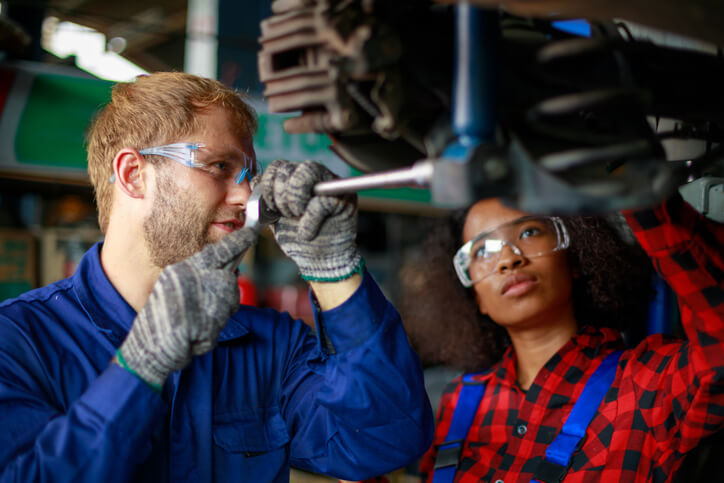How Mentorship Accelerates Success for Auto Mechanic Students
Starting a career in automotive repair can feel overwhelming. But having a mentor, an experienced instructor, or even a classmate, can make all the difference. In a hands-on field like auto mechanics, learning from someone who’s “been there, done that” speeds up your progress. In fact, one engineering program study notes that “mentoring accelerates learning far beyond traditional educational settings” by giving students real-world insights and personalized advice.
In an auto mechanic school in Surrey (or any training program), mentors bring real repair-shop experience into the classroom. They show you how to diagnose problems, avoid common mistakes, and work more confidently with tools and cars. By sharing their mistakes and tips, mentors offer a shortcut to wisdom that might otherwise take years to learn. Rather than fumbling through trial and error on your own, you can ask questions and get instant feedback — accelerating your learning in the auto mechanic course.
Key Mentorship Benefits
- Insider know-how: Mentors share hands-on tricks of the trade that you won’t find in textbooks. This means you learn practical skills faster – for example, how to adjust a carburetor or use diagnostics tools correctly – saving you time as you practice on real vehicles.
- Networking & opportunities: Experienced mentors often have industry connections. A mentor might introduce you to local shops or recommend you for internships and jobs. Building this network early (in your automotive service technician program) can open doors to the best employers in Surrey or Vancouver once you graduate.
- Confidence boost: Learning complex engine systems can be tough. A supportive mentor encourages you and points out what you’re doing right. As one instructor put it, many young students have “never had someone tell them they’re good at something… mentorship gives them that validation and the momentum to go further”. Hearing praise and guidance keeps you motivated and confident as you tackle challenging repairs.
- Accountability: Mentors help you set goals, like mastering brake systems or completing a repair project, and check in on your progress. When someone’s counting on you to improve, it’s easier to stay focused and meet your deadlines. This ongoing feedback keeps your studies on track and helps turn goals into achievements.
- Peer support: In many auto mechanic programs, upper-year students and classmates form a learning community. Working together on projects or study groups means you learn from each other’s experiences. Peers can share tips on problem-solving and safety, fostering a collaborative environment where everyone helps one another improve.

Together, these benefits mean that mentored students often develop technical skills and confidence more quickly. You’ll spend less time stuck on a problem and more time improving. Instructors and senior students fill in gaps between theory and practice, effectively blending classroom learning with real-world shop training.
Learning Beyond the Classroom
Mentorship isn’t just about fixing cars. It also builds professional habits and soft skills. A mentor can teach you how to communicate with customers, manage your time in a busy shop, and prioritize safety. They might share stories about tricky diagnoses or tricky customers, helping you learn how to handle stress and keep a cool head. In a friendly, conversational way, they guide you through both technical challenges and career decisions (like which specialty to pursue after the auto mechanic course).
By the end of your training, these mentor-guided lessons give you a leg up on success. You’ll enter the workforce not only with certificates, but with a clear sense of direction and a network of contacts. Many students find that graduates who have had strong mentor support land jobs faster and feel more prepared. After all, having someone in your corner can make even a steep learning curve feel manageable.

How to Find and Approach a Mentor
Whether you’re still in auto mechanic school or already working in the field, great mentors are often closer than you think. Here are a few ways to connect with them:
- Start with your instructors. They’re often industry veterans who enjoy guiding new mechanics. Ask questions after class or request feedback on a repair you’re working on. Genuine curiosity shows initiative.
- Connect with peers and alumni. Senior students or recent graduates can offer valuable insights into both coursework and the transition to the workplace.
- Network during internships. When you’re on placement, pay attention to technicians who take time to explain things clearly. Those are potential mentors. Ask if you can shadow them or stay in touch after your placement ends.
- Join automotive associations or online communities. Local trade associations and mechanic forums are full of experienced professionals who like helping newcomers. Participate in discussions, share your progress, and don’t hesitate to reach out respectfully for advice.
- Be open and appreciative. Mentorship isn’t just about receiving help. It’s about building trust. Show gratitude, act on feedback, and share your progress. Mentors love seeing their guidance pay off.
Ready to turn your passion into a career? Start with training that emphasizes the real-world skills you’ll use every day, taught by qualified instructors who act like mentors.
Learn more about enrolling in the auto mechanic school in Surrey and join the next generation of certified automotive pros.


